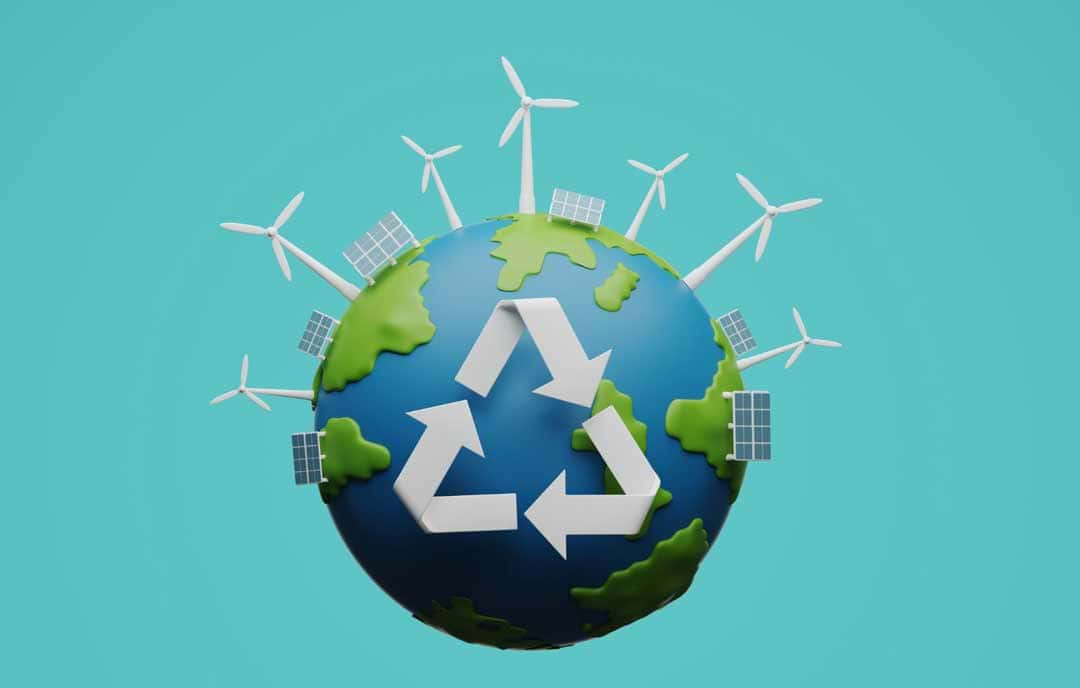Want out of powering your home with dirty energy from coal and natural gas? You’ll be glad to hear that going solar can reduce carbon emissions from powering your home by 80%.
Solar home energy has been around for decades now, but in the last decade or so the technology surrounding solar has grown in leaps and bounds. Those advances include the efficiency of panels, how and where panels can be used, and even extend to the ways we can recycle solar panels.
Which is great news, since the materials solar panels are made out of aren’t always considered as green as the energy those panels generate.
Thankfully, solar panels can be recycled and reused.
Keep reading to learn more about how solar panel recycling works, and what that means for homeowners looking for a truly green energy option.
What Are Solar Panels Made Of?
Before we dive into all things solar panel recycling, it might be helpful to know what solar panels are made of.
If you’re installing rooftop solar it’s probably photovoltaic solar panels that are mono- or polycrystalline (the most common types for residential solar). But don’t let the word for the type of panel fool you, solar panels are made of common materials we use every day.
For home solar, the vast majority of panels used (about 95%) are made of silicon. Which isn’t the same thing as silicone. Silicon is made from quartz, and used in everything from paint to computers. For solar, silicon is turned into wafers that respond to UV light. Those wafers are put in a frame that uses glass, plastic, and metal to become a solar panel.
Because those materials are so common, there are plenty of processes already in place to mechanically and/or chemically recycle glass, plastic, and metal. Even the silicon wafers, which can be a bit more difficult to recycle, can be reused.
It’s important to note as well that these materials are being put to use in a panel that, on average, will last 25 years. Much longer than a glass soda bottle, plastic food container, or even many of our computers.
But when solar panels are finally at the end of their usefulness, how exactly are they taken apart?
You Can Recycle Solar
When solar panels are at the end of their lifecycle, there are two processes to recycle solar: mechanical recycling and chemical recycling.
The first, mechanical recycling, is one you’re probably already somewhat familiar with. Mechanical recycling is where the materials are physically separated. Think of how we separate out plastic film and tape from cardboard and paper products before putting the latter in recycling.
Then, the recyclable materials are returned to something close to their original elements by grinding, shredding, and other mechanical processes.
But solar panels are a bit more complex than a cardboard box. That’s where specialized recycling companies and chemical recycling comes in.
Chemical recycling uses chemical reactions to separate out the parts of a solar panel that can’t be easily removed. While the majority of a solar panel is actually glass, plastic, or aluminum framing that can be removed and mechanically recycled, the silicon wafers and embedded wiring need chemical recycling.
Together, mechanical and chemical recycling keep solar panels out of landfills where they can become a problem.
Solar vs. Other Energy Sources
So if solar panels use up natural resources, and need to be recycled to avoid turning into unsafe waste in landfills, does that mean they’re not actually a clean energy source?
The best way to answer that is to take a look at photovoltaic solar panels versus other energy generation methods. Let’s take a look at how electricity generated by solar compares to traditional fossil fuel power generation and wind turbines.
Comparing solar with fossil fuels is easy. Studies show that solar is better than fossil fuels, even taking into account all stages of a solar panel’s lifecycle. The carbon emissions associated with energy generation from solar are about 83% lower than those from coal and natural gas.
Not surprising given the nickname “dirty energy” used for coal and natural gas.
But how does solar measure up to energy generated from wind turbines? Wind turbines generate 11 grams of CO2 emitted per kilowatt hour of energy (versus 44 grams for a solar equivalent) on average. However, with no moving parts and a regularly lasting 5 years more than wind turbines, solar has other benefits.
Because home solar simply sits on a roof, it doesn’t take up space that could be used for other activities like farming or recreation. Solar also doesn’t have moving parts that can pose harm to animals who live in and travel through the area.
Plus, solar is more recyclable than wind turbines which are often made of fiberglass. Because you can recycle solar, it winds up being just a little more green than wind turbines.
Ultimately, for homeowners looking to power their how with a cleaner energy source, solar is a great choice that’s also quiet and requires minimal maintenance.
Go Solar to Be Green and Save
Ready to own your power and save some green? Going solar is simple with a professional and local solar installation company like Purelight Power.
Right now, you can save even more with our $0 down, nothing out of pocket program for qualifying roofs.
Find out if your roof qualifies with a quick 30 second survey!





